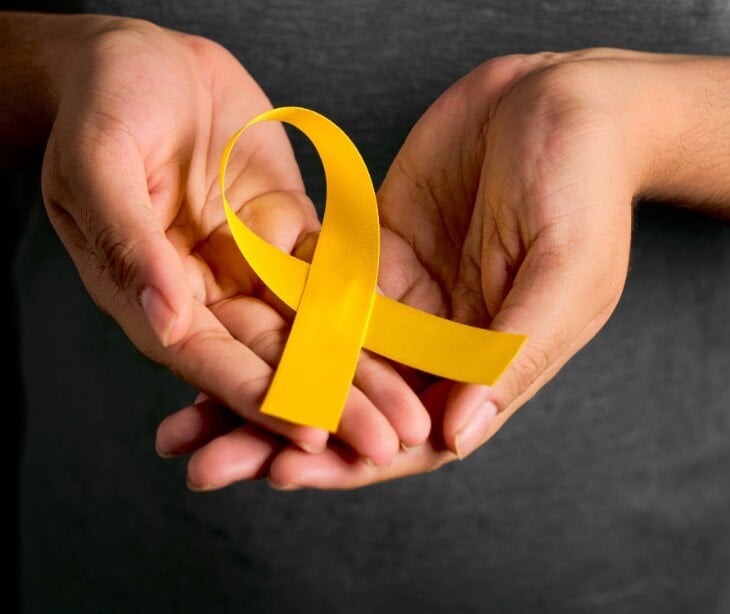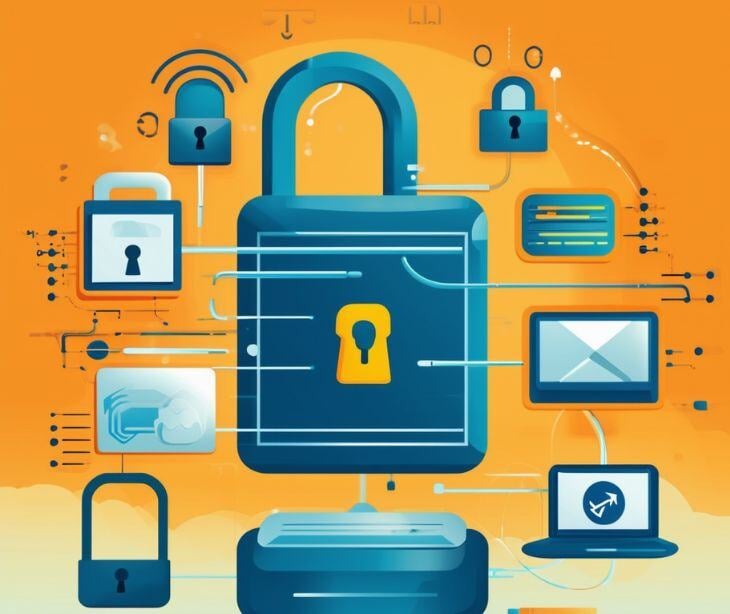6 min read
HIPAA compliant messaging for suicide prevention and crisis intervention
Farah Amod
March 14, 2025

Effective suicide prevention and crisis intervention rely on immediate, compassionate communication. Many people in crisis reach out through digital channels, making secure and accessible communication a priority. Crisis hotlines, mental health providers, and emergency responders must exchange sensitive information quickly while staying compliant with HIPAA.
HIPAA compliant messaging allows crisis teams to respond without delay while protecting patient confidentiality.
The importance of secure communication in crisis intervention
When an individual experiences a mental health crisis, rapid access to support can save lives. A number of individuals who die by suicide have had recent interactions with healthcare providers. For example, a study regarding how patient suicides impact healthcare professionals found that 51% of healthcare professionals have had experience with a patient committing suicide, indicating the need for effective crisis response and clear communication among mental health professionals, crisis intervention teams, and emergency medical services. Communication barriers often impede timely crisis intervention, leading to inadequate support for those at risk.
Despite limited research on the effectiveness of crisis line services, studies suggest that these services can improve both immediate and short-term outcomes for individuals experiencing a crisis. As noted in The Effectiveness of Crisis Line Services, “studies overall provide initial support for such services, particularly in terms of calls impacting immediate proximal and short-term distal outcomes.” Crisis line callers are a high-risk population, reinforcing the need for “competent responders trained in suicide-specific assessment and care.” The study also indicates that “optimal models of crisis lines should implement proactive follow-up services that incorporate distal evaluation,” which can strengthen crisis intervention efforts.
Additionally, many crisis support organizations have noted that digital communication, such as text messaging and online chat, is now a preferred method for those seeking help. People in distress often find texting more comfortable than a phone call, making secure digital platforms beneficial for suicide prevention efforts. HIPAA compliant messaging ensures that crisis counselors, therapists, and emergency responders can share information without compromising patient privacy. Encrypted communication helps mental health professionals coordinate care and comply with privacy laws while addressing urgent situations.
Advantages of HIPAA compliant messaging in suicide prevention
- Faster response times for crisis situations: When an individual is at immediate risk, crisis responders need to act quickly. Secure messaging platforms allow mental health professionals, crisis hotlines, and emergency responders to coordinate interventions in real time.
- Confidential communication for at-risk individuals: Many individuals in crisis fear stigma and prefer to seek help discreetly. HIPAA compliant messaging platforms provide a secure way for individuals to communicate with counselors without concerns about privacy violations.
- Improved collaboration between mental health providers and emergency responders: Crisis intervention often requires coordination between therapists, hospitals, law enforcement, and emergency medical teams. Secure messaging enables seamless communication while protecting sensitive patient information.
- Accessible support for high-risk populations: According to a study on Adolescent Mental Health in the Digital Age young people and marginalized communities are more likely to seek crisis support via text messaging. HIPAA compliant messaging ensures that these populations receive the help they need while maintaining their privacy.
- Secure documentation and follow-up care: Crisis intervention does not end after an initial conversation. Secure messaging platforms allow for encrypted documentation of crisis interactions, ensuring that mental health providers can follow up with patients safely and effectively.
Read more: HIPAA compliant text messaging for crisis intervention
Case studies showcasing the impact of messaging in crisis intervention
- The National Suicide Prevention Lifeline's text-based crisis support: The National Suicide Prevention Lifeline introduced a secure text messaging program to provide immediate support for individuals in crisis. A study published in Suicide and Life-Threatening Behavior evaluated the effectiveness of Lifeline's crisis chat services, revealing that chatters experienced reductions in emotional distress by the end of the intervention. Specifically, two-thirds of individuals with suicidal thoughts reported the chat was helpful, and nearly half felt less suicidal afterward. These findings prove the value of secure digital communication in engaging at-risk populations and reducing the need for emergency interventions.
- Telehealth-based suicide prevention at the Mayo Clinic: The Mayo Clinic has integrated secure messaging into its telehealth programs to enhance patient care. A study analyzing patient portal messages during the COVID-19 pandemic found that patients utilized secure messaging to address various health concerns, including mental health issues such as anxiety and depression. The approach facilitated timely interventions and support for high-risk patients.
Read also: Areas of support in mental health crisis management
Best practices for effective crisis intervention and suicide prevention
According to Paubox’s article on crisis intervention, best practices for effective crisis intervention and suicide prevention include:
- Fostering empathy in conversations: Staff should be trained to engage in compassionate and supportive text interactions to create a sense of understanding and care.
- Sharing helpful resources: Text messaging can be a tool for providing helpline numbers, crisis strategies, coping techniques, self-help materials, and referrals to mental health services, ensuring individuals have access to further support.
- Balancing digital and human connection: While text-based support is valuable, it shouldn’t replace human interaction entirely. Offering options for phone calls or in-person conversations when needed helps maintain a personal touch.
- Collaborating with mental health services: Partnering with helplines, local clinics, and community organizations ensures a coordinated approach to assisting individuals in crisis.
Implementing HIPAA compliant messaging
- Choosing a secure communication platform: Organizations must evaluate platforms for HIPAA compliance, considering encryption standards, access controls, data storage, and industry regulations.
- Obtaining informed consent: Individuals should receive clear information about text messaging use, their rights regarding protected health information (PHI), and any potential risks. Consent forms should outline these details transparently.
- Developing staff policies and guidelines: Clear policies should define staff responsibilities, procedures for handling sensitive information, and compliance measures to ensure HIPAA adherence.
- Providing comprehensive training: Staff should undergo training on HIPAA compliance, confidentiality, privacy, and ethical considerations related to crisis intervention via text messaging.
- Implementing monitoring and audits: Regular oversight of text messaging activities helps ensure compliance, detect potential risks, and prevent data breaches.
- Establishing secure data management: Organizations should follow industry best practices for data retention and disposal, ensuring sensitive information is stored securely and removed properly when no longer needed.
Related: The guide to HIPAA compliant text messaging
In the news: HHS mental health accomplishments
In June 2024, HHS made progress in expanding mental health services, strengthening crisis response, and growing the behavioral health workforce. Since its launch in July 2022, the 988 Suicide & Crisis Lifeline has handled over 9.5 million calls, with expanded services offering nationwide text, chat, and specialized support for LGBTQI+ individuals and the deaf and hard of hearing. SAMHSA invested $1.75 billion in Certified Community Behavioral Health Clinics, extending access to comprehensive care across 473 communities, with plans for ten additional states to join the program by July 2024. More than $1 billion in funding supported early intervention and crisis response efforts, benefiting approximately 8.3 million people. Additionally, policy changes allowed over 400,000 marriage and family therapists and mental health counselors to independently treat Medicare beneficiaries, improving access for more than 65 million Americans. HHS also prioritized mental health in schools, funded Medicaid billing integration for services, and awarded nearly $60 million for mental health training in primary care. Investments in telebehavioral health and technology expanded access in underserved and Tribal communities, saving over $1 million in travel costs. These efforts laid a stronger foundation for a more accessible and responsive mental health system nationwide.
Our solution
Paubox makes crisis communication fast, secure, and accessible. With HIPAA compliant texting, crisis counselors and mental health professionals can connect with people in distress instantly, no apps, no logins, just encrypted messages delivered straight to their phone. When someone is struggling, the last thing they need is a complicated process to get help. Paubox removes those barriers, making it easier for individuals to reach out in a way that feels safe and familiar.
For crisis teams, seamless communication is fundamental. Paubox ensures mental health providers, crisis hotlines, and emergency responders can securely share urgent information in real-time without risking patient confidentiality. Whether it’s a suicide risk assessment, emergency intervention, or a follow-up check-in, Paubox’s secure messaging keeps conversations protected while allowing teams to respond quickly.
Text-based support has become a preferred option for many at-risk individuals, especially younger populations and those who fear stigma. Paubox not only protects these interactions but also helps crisis organizations streamline follow-ups, track engagement, and improve long-term care strategies. By eliminating security concerns and compliance headaches, Paubox allows crisis intervention teams to focus on what matters most—providing life-saving support when it’s needed most.
See more: Introducing HIPAA compliant texting API by Paubox
FAQs
How does HIPAA compliance affect crisis intervention services?
HIPAA ensures that crisis hotlines, therapists, and emergency responders can share sensitive information securely while maintaining patient confidentiality. It allows for rapid intervention without risking privacy violations.
Can crisis hotlines legally share information with emergency responders?
Yes, under HIPAA’s emergency disclosure provisions, crisis hotlines can share information with emergency responders if an individual is at immediate risk of harm. However, organizations must establish clear policies to ensure compliance.
What are the risks of using non-compliant messaging in suicide prevention?
Non-compliant messaging can lead to data breaches, unauthorized access to sensitive information, and potential HIPAA violations, this can undermine trust in crisis support services and expose organizations to legal consequences.
How can crisis intervention teams handle high message volumes while maintaining security?
Teams can implement secure AI-assisted triage, trained responders, and HIPAA compliant automation tools to manage high volumes while ensuring personalized, confidential responses.
What should individuals in crisis consider when using digital communication for support?
Individuals should verify that crisis support services use secure, HIPAA compliant platforms to protect their privacy. If in immediate danger, calling emergency services may be the safest option.
Subscribe to Paubox Weekly
Every Friday we'll bring you the most important news from Paubox. Our aim is to make you smarter, faster.



